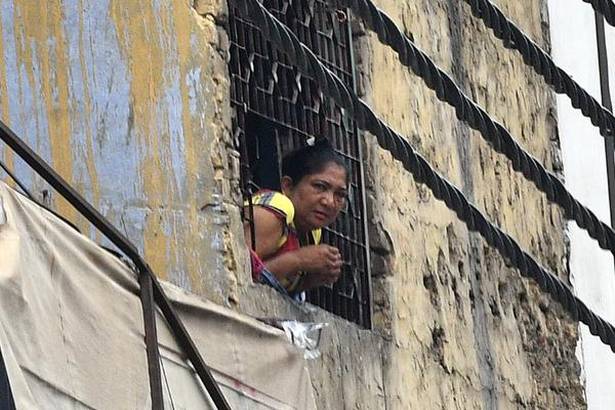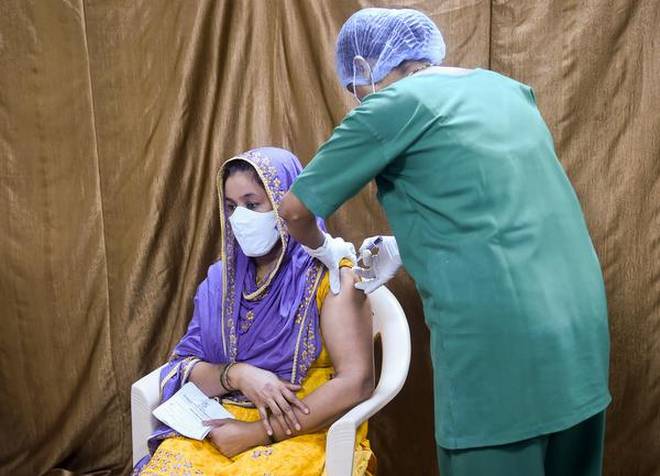Since the pandemic broke, India’s roughly nine lakh female sex workers are out of work, steeped in debt, and at risk from the virus

Sunita lives with her husband and son in a tiny room in a crowded Mumbai slum. Tin sheets make up the walls. A thin bedsheet, tightly tied across the room, acts as a partition between the kitchen and the rest of the house. Outside, a few yards away, is a common bathroom, which more than 200 people in the slum use. “Living here makes me anonymous. Mostly, I like that,” she says. Sunita has never invited her clients home.
Now, however, Sunita, whose sex work supports 11 members of her family back home in Bihar, has no other choice. With lodges closed and all local transport shut down over the past four months, she has been forced to bring home the only two clients she could retain. “My neighbours stare at me every time I step out,” she says, but her bigger fear is that the landlord might ask her to vacate.
Sunita is one of nine lakh female sex workers in India, according to the National AIDS Control Organisation, a division of the Ministry of Health and Family Welfare. Of the 62,137 transgender persons in 17 States, 62% also engage in sex work. Sex work has almost come to a standstill since March 2020; the pandemic has hit the community hard and in multiple ways. Everything from debt and depression to the risk of contracting COVID-19 plagues sex workers in the country.
On June 2 every year, International Sex Workers’ Day is marked with some sort of celebration by sex workers’ collectives. “This year, we had no energy or enthusiasm to celebrate,” says Sunita, who has since reached out to sex workers’ unions so that she can claim some of the government benefits and entitlements that are on offer.
Financially vulnerable
Last year, the Supreme Court directed State governments to supply dry rations to sex workers without insisting on identity documents. The Court was hearing a PIL filed by the Durbar Mahila Samanway Committee (DMSC), the country’s oldest sex workers’ collective. The PIL came soon after an extensive study by a Pune-based non-profit, Asha Care Trust, which works in Budhwar Peth, India’s third-largest red-light area, which houses nearly 3,000 commercial sex workers. The study had found that more than 85% of sex workers had taken loans during the pandemic. The study, which included responses of 300 commercial sex workers in Pune, also found that 98% of them took loans from brothel owners, managers and moneylenders, making them financially vulnerable.
Beena, 24, a sex worker in Delhi, has a debt of ₹1,10,000. “Even if I begin to earn the amount I used to earlier, it will take me two years to repay the debt,” she says. She has not earned a rupee in the past two months. Since Beena has no address proof, she cannot access loans easily, so she has borrowed money from her brothel owner.
One of the biggest hurdles sex workers have faced during the second wave of the pandemic is access to vaccination. Not only are vaccines not available, they are prey to the abundant misinformation. Sunita had the opportunity to get a jab but chose not to; she says some people in her neighbourhood had told her it could lead to blood clots and tumours. A Bengaluru-based worker in her 60s tells me that she got her first dose but did not go back for the second because she had severe cramps and joint pains after the first jab. “My sathis at Karnataka Sex Workers Union kept pushing me to go, but I was too scared,” she says.
Vaccinating sex workers should be a priority, especially for those with ailments such as STDs, says Meena Seshu, founder of Sangli-based Sangram. “Vaccination camps should be organised close to where the women live as they seldom step outside the red-light area,” she says.
Misinformation epidemic
Ayeesha Rai of the National Network of Sex Workers (NNSW), a collective of five million sex workers across the country, says that some of the women believe COVID-19 will not affect them. “That’s what they thought about HIV back in the day,” she says. The network is pushing hard to create awareness about the pandemic and about the importance of vaccines. There is much fake news going around on social media and WhatsApp, says Rai.
In the first week of June, NNSW wrote to the Delhi government demanding better access to vaccines for sex workers and transgender people. In early June, around 200 transgender people and sex workers got the jab at a temporary camp in Gurugram. Around the same time, some 1,300 sex workers in Mumbai’s Kamathipura were also vaccinated. “Although many sex workers do not have identification documents, we are going ahead with vaccinations,” says Makrand Dagadkhair, assistant commissioner of Mumbai’s E ward. Since most red-light areas are populated with undocumented migrants, it complicates aid delivery mechanisms.
Many sex workers live with co-morbidities, which puts them at a greater risk. “Several people are also immunocompromised as they live with HIV,” says Seshu. Rinnu is a sex worker in Hanuman Tekdi, a red-light area in Maharashtra’s Bhiwandi, with 350 to 400 residents. She has not bought her HIV/AIDS medication for six months now. “When I make any money, I spend it on food,” she says. HIV medicines can cost up to ₹5,000 a month.
Every evening, Rinnu sits on a bed outside her one-room house to talk to her neighbour, Damini. Rinnu has seen her friend grow pale in the past few months. Her friend, a trans woman, has had sex reassignment surgery, and needs many more drugs. In February, Rinnu rushed to a local hospital as Damini experienced extreme pain in her stomach. “But the doctor asked us to leave as he had other patients to see,” she says. Another matter of concern is the growing alcohol and drug dependency among those in the community, which has compounded the mental health issues faced by some sex workers, many of whom are reporting depression and suicidal tendencies.
In April 2020, the Delhi Commission for Women took suo motu cognisance of the ‘inhuman conditions’ in brothels situated on G.B. Road. It sought information on the availability of food and personal hygiene materials in the area. Beena, however, says she has not seen any change in living conditions in the area in over a year.
Unviable work
Among larger collectives such as DMSC, the women have taken matters into their own hands. They check the temperature and screen customers for symptoms when they enter the red-light district in Kolkata. And members clean and sanitise the room after their customers leave.
The National Human Rights Commission, in an advisory in October 2020 on the rights of women in the context of COVID-19, directed the Central and State governments to enable sex workers to access welfare schemes under the category of ‘informal workers’. That fell on deaf ears, says Rai. The existing laws in India criminalise aspects of sex work, including soliciting, brothels and living off the earnings of sex work. “What is left?” asks Rai. Such laws lead to sex workers being repeatedly raided and taken to shelter homes.
Some of Beena’s friends have decided to opt for other kinds of work to save themselves from starvation. One sells vegetables, another is now a domestic help. “I find it ironic that these women, who had to get into sex work because they could not find any other job, today find that sex work is not viable any more,” says Beena.
The Global Fund to Fight AIDS, Tuberculosis and Malaria allocated $10 million to serve the needs of vulnerable communities such as transgender people and sex workers in India. “This would ensure each of the four lakh people [formally identified as sex workers] entitled would get about ₹1,500,” says Seshu. But the fund is caught in bureaucratic red tape. “I have seen women die waiting for that ₹1,500,” says Seshu.
Stop-gap measure
In what seems like a parallel world, sex workers like Bengaluru-based Kavya have been earning three times what they used to before the pandemic. In May, she earned ₹60,000. “With that, I bought an iPhone,” she says. Buying fancy phones is not an indulgence for Kavya, it is an investment. Most of Kavya’s customers seek phone sex or internet sex and that is how her earnings have grown.

Kavya lives in a middle-income neighbourhood in Bengaluru. She has a room to herself on the terrace, where her parents seldom disturb her. It began when she was introduced to some chatrooms on Telegram by her friends. “I encounter all kinds of men. Many make me feel unsafe,” she says. But the pandemic ensures that she limits her interaction to the screen. This lends a layer of security. Sex work is a stop-gap arrangement for her. Kavya dreams of studying law in a foreign university and wants to save up money for it. She says she would love to use a law degree to help sex workers get their due recognition.
Kavya lies on her bed and scrolls through a news article about sex workers in New Zealand on her phone. Her eyes light up when she reads that in New Zealand, sex workers are entitled to an emergency wage subsidy. This subsidy is for all workers whose earnings have fallen by at least 30% due to the pandemic.
“If we recognise sex work as work in this country, then we can avail such benefits too,” she says. “But we have a long way to go.”
*Names of sex workers changed to protect privacy.
Published in: The Hindu
Published on: July 3, 2021
Link: https://www.thehindu.com/society/from-debt-to-depression-the-pandemic-has-hit-indias-sex-workers-hard/article35113988.ece


